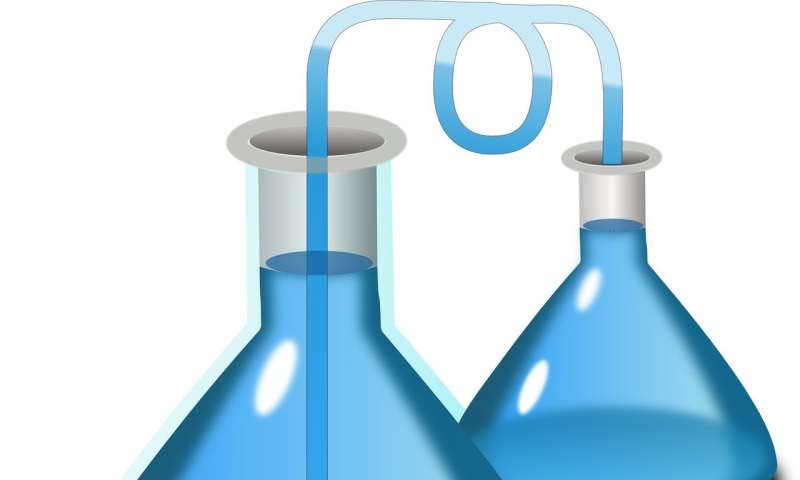Robot chemist discovers new molecules and reactions

A new type of artificial-intelligence-driven chemistry could revolutionise the way molecules are discovered, scientists claim.
In a new paper published today in the journal Nature, chemists from the University of Glasgow discuss how they have trained an artificially-intelligent organic chemical synthesis robot to automatically explore a very large number of chemical reactions.
Their 'self-driving' system, underpinned by machine learning algorithms, can find new reactions and molecules, allowing a digital-chemical data-driven approach to locating new molecules of interest, rather than being confined to a known database and the normal rules of organic synthesis.
The result could be a decreased cost for discovering new molecules for drugs, new chemical products including materials, polymers, and molecules for high tech applications like imaging.
The team demonstrated the system's potential by searching around 1000 reactions using combinations of 18 different starting chemicals. After exploring only around 100, or 10 percent, of the possible reactions, the robot was able to predict with over 80 percent accuracy which combinations of starting chemicals should be explored to create new reactions and molecules. By exploring these reactions, they discovered a range of previously unknown new molecules and reactions, with one of the reactions classed to within the top 1 percent of the most unique reactions known.
The approach was designed and developed by the team lead by Professor Leroy (Lee) Cronin, the University of Glasgow's Regius Chair of Chemistry. Professor Cronin and his team are convinced that this result will help pave the way for the digitisation of chemistry and developing new approaches to chemistry using a digital code which drives autonomous chemical robots.
Professor Cronin said: "This approach is a key step in the digitisation of chemistry, and will allow the real time searching of chemical space leading to new discoveries of drugs, interesting molecules with valuable applications, and cutting cost, time, and crucially improving safety, reducing waste, and helping chemistry enter a new digital era."
More information: Jarosław M. Granda et al. Controlling an organic synthesis robot with machine learning to search for new reactivity, Nature (2018). DOI: 10.1038/s41586-018-0307-8
Journal information: Nature
Provided by University of Glasgow




















